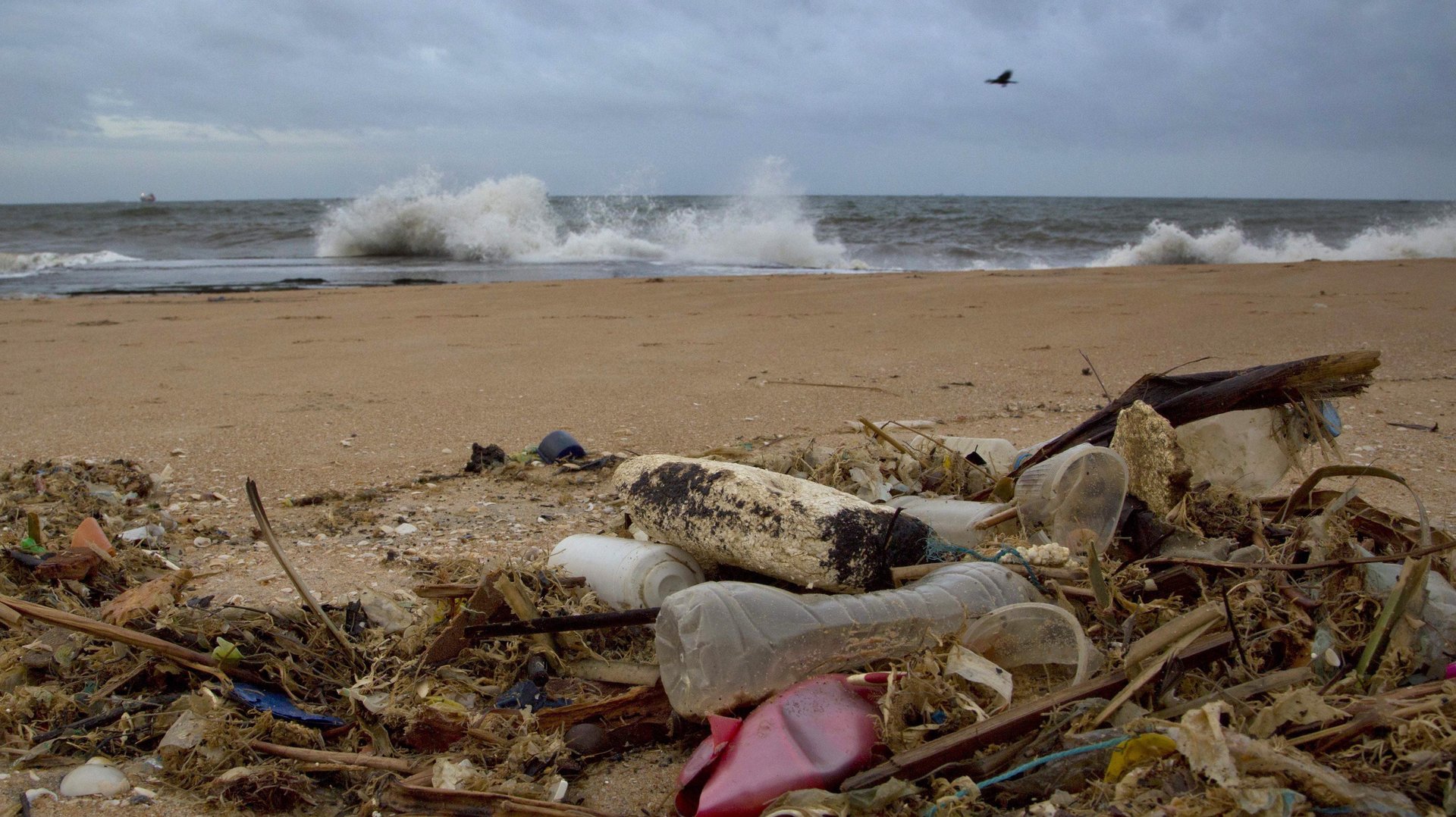Here’s how you eat a credit card’s worth of plastic each week
People across the world unwittingly consume roughly 5 grams of plastic each week in the course of daily life, or about the weight of a credit card, according to Australian researchers. That’s about 250 grams per year—more than a half-pound of plastic every 12 months.


People across the world unwittingly consume roughly 5 grams of plastic each week in the course of daily life, or about the weight of a credit card, according to Australian researchers. That’s about 250 grams per year—more than a half-pound of plastic every 12 months.
A new study (pdf) commissioned by the World Wide Fund for Nature—formerly known as the World Wildlife Fund—suggests that over the course of seven days, the average person consumes 2,000 tiny plastic particles and fibers, 1,769 of which come from drinking water alone.
How plastics get into humans
Microplastics come from larger discarded objects that break down over time into smaller pieces. They get into waterways and enter the food chain when eaten by fish and other marine life. The issue has thus far received “an inadequate global response by governments,” the researchers said in a statement.
An appendix to the report notes that many factors have an impact on the exact amount of microplastics you will ingest, such as age and lifestyle. Specific effects on human health are not yet fully understood. High levels of exposure to microplastics can effect the lungs, liver, and brain cells, as well as sexual function, fertility. They are believed to lead to an increased occurrence of certain cancers.
The different ways plastics enter your system
Microplastics can get into your system via, among other things, honey, sugar, rice, pasta, bread, milk, utensils, cutlery, toothpaste, toothbrushes, and chicken gizzards.
The number of microparticles the average person ingests depends on what they eat:
Where you live matters
The amount of microplastics one takes in varies by geographical region—water in the US contains about twice as much plastic as in Europe, the study says:
For an American, that comes out to nearly five plastic fibers in every half-liter of water they drink: